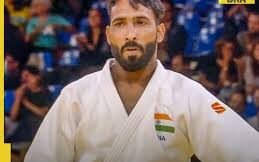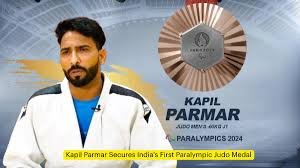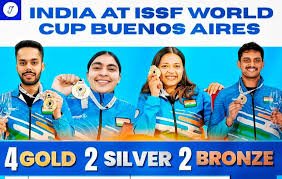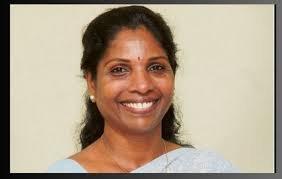Kapil Parmar Secures India’s First Paralympic Judo Medal
Introduction: Historic Achievement in Paralympic Judo
In a landmark achievement for Indian sports, Kapil Parmar has secured India’s first-ever Paralympic judo medal. This momentous victory at the Tokyo Paralympics highlights a significant milestone in the country’s sporting history, marking a breakthrough in the field of disability sports.
Details of the Victory
Kapil Parmar, representing India in the Paralympic judo category, competed with determination and skill, ultimately winning a bronze medal. His exceptional performance in the -60 kg weight category was a testament to his rigorous training and dedication. The medal not only brings pride to India but also sets a precedent for future athletes in the field of Paralympic sports.
Impact on Indian Sports
This achievement is a significant boost for the promotion of Paralympic sports in India. It shines a spotlight on the potential and capabilities of athletes with disabilities, encouraging more inclusive participation in sports across the country. The success of Kapil Parmar serves as an inspiration to many and fosters a greater appreciation for the challenges and triumphs of para-athletes.
Support and Training
Kapil Parmar’s journey to winning the Paralympic medal was supported by extensive training and resources provided by the Sports Authority of India (SAI) and other organizations. His dedication to judo and the backing from various sports bodies have played a crucial role in achieving this historic feat. The victory underscores the importance of robust support systems for athletes with disabilities.
Future Implications
The success of Kapil Parmar may lead to increased investment in Paralympic sports and better facilities for para-athletes in India. It is expected to inspire a new generation of athletes and pave the way for more medals and accolades in future Paralympic Games.

Why This News is Important
Breaking New Ground in Paralympic Sports
Kapil Parmar’s historic win is a groundbreaking moment for Indian sports, representing the country’s first medal in Paralympic judo. This achievement is pivotal in recognizing and celebrating the capabilities of para-athletes. It demonstrates that with perseverance and support, athletes with disabilities can achieve remarkable success on the global stage.
Encouraging Inclusivity in Sports
The medal won by Parmar underscores the importance of inclusivity in sports. It brings attention to the need for equal opportunities and resources for athletes with disabilities. By showcasing the potential of para-athletes, it encourages broader participation and support for disability sports in India.
Setting a Precedent for Future Athletes
This victory sets a new standard for Paralympic athletes in India and beyond. It highlights the possibilities for future athletes with disabilities and serves as a powerful example of what can be achieved through dedication and hard work. The success story of Kapil Parmar is likely to inspire many young athletes to pursue their dreams.
Boosting Support for Paralympic Sports
Kapil Parmar’s achievement is expected to lead to increased support and investment in Paralympic sports. It may result in better training facilities, more funding, and greater visibility for para-athletes. Such developments are crucial for the growth and success of disability sports in India.
Promoting National Pride and Unity
The success of Kapil Parmar fosters national pride and unity, bringing together people from various backgrounds to celebrate a common achievement. It strengthens the sense of national identity and pride in India’s sporting accomplishments, promoting a unified support for all athletes.
Historical Context
Evolution of Paralympic Sports in India
Paralympic sports in India have evolved significantly over the years. Initially, there was limited awareness and support for athletes with disabilities. However, with the establishment of various sports organizations and increased government support, there has been notable progress. The first Paralympic Games were held in 1960, and India began participating in them in 1968. Since then, Indian athletes have made strides in several events, but the win in judo by Kapil Parmar marks a new high.
Development of Judo as a Paralympic Sport
Judo was introduced to the Paralympic Games in 1988. It has since grown in popularity and competitiveness. The sport requires a high level of skill and strategic prowess, and para-judo has become an integral part of the Paralympic movement. The success of athletes like Kapil Parmar is a reflection of the sport’s growing prominence and the increasing support for para-judo.
Key Takeaways from Kapil Parmar’s Historic Medal
| Serial Number | Key Takeaway |
|---|---|
| 1 | Kapil Parmar won India’s first Paralympic judo medal at the Tokyo Paralympics. |
| 2 | Parmar secured a bronze medal in the -60 kg weight category. |
| 3 | This achievement highlights the potential and capabilities of para-athletes. |
| 4 | The victory is expected to increase investment and support for Paralympic sports in India. |
| 5 | Kapil Parmar’s success serves as an inspiration for future generations of athletes with disabilities. |
Important FAQs for Students from this News
1. Who is Kapil Parmar?
Kapil Parmar is an Indian judo athlete who won India’s first-ever Paralympic judo medal. He competed in the -60 kg weight category and secured a bronze medal at the Tokyo Paralympics.
2. What is the significance of Kapil Parmar’s victory?
Kapil Parmar’s victory is significant as it marks the first time an Indian has won a medal in Paralympic judo. It highlights the growing prominence of Paralympic sports in India and serves as an inspiration for athletes with disabilities.
3. When did Kapil Parmar win the medal?
Kapil Parmar won the bronze medal at the Tokyo Paralympics, which were held in 2021. The exact date of his competition and victory would be detailed in the official Paralympic records.
4. What impact does this victory have on Paralympic sports in India?
This victory is expected to boost interest and investment in Paralympic sports in India. It underscores the need for better training facilities and support systems for para-athletes and encourages greater inclusivity in sports.
5. How does Kapil Parmar’s achievement affect future para-athletes?
Kapil Parmar’s achievement is likely to inspire future generations of para-athletes, demonstrating that success is possible with dedication and hard work. It may also lead to increased recognition and support for Paralympic sports in India.
Some Important Current Affairs Links


















 Exciting News!
Exciting News!  Join Our Telegram Channel Now!
Join Our Telegram Channel Now!
 Join our Telegram channel for a thrilling adventure into the world of daily current affairs.
Join our Telegram channel for a thrilling adventure into the world of daily current affairs. 
 Don’t miss out on the latest updates and insights! Click to join now and be part of the knowledge revolution!
Don’t miss out on the latest updates and insights! Click to join now and be part of the knowledge revolution! 
